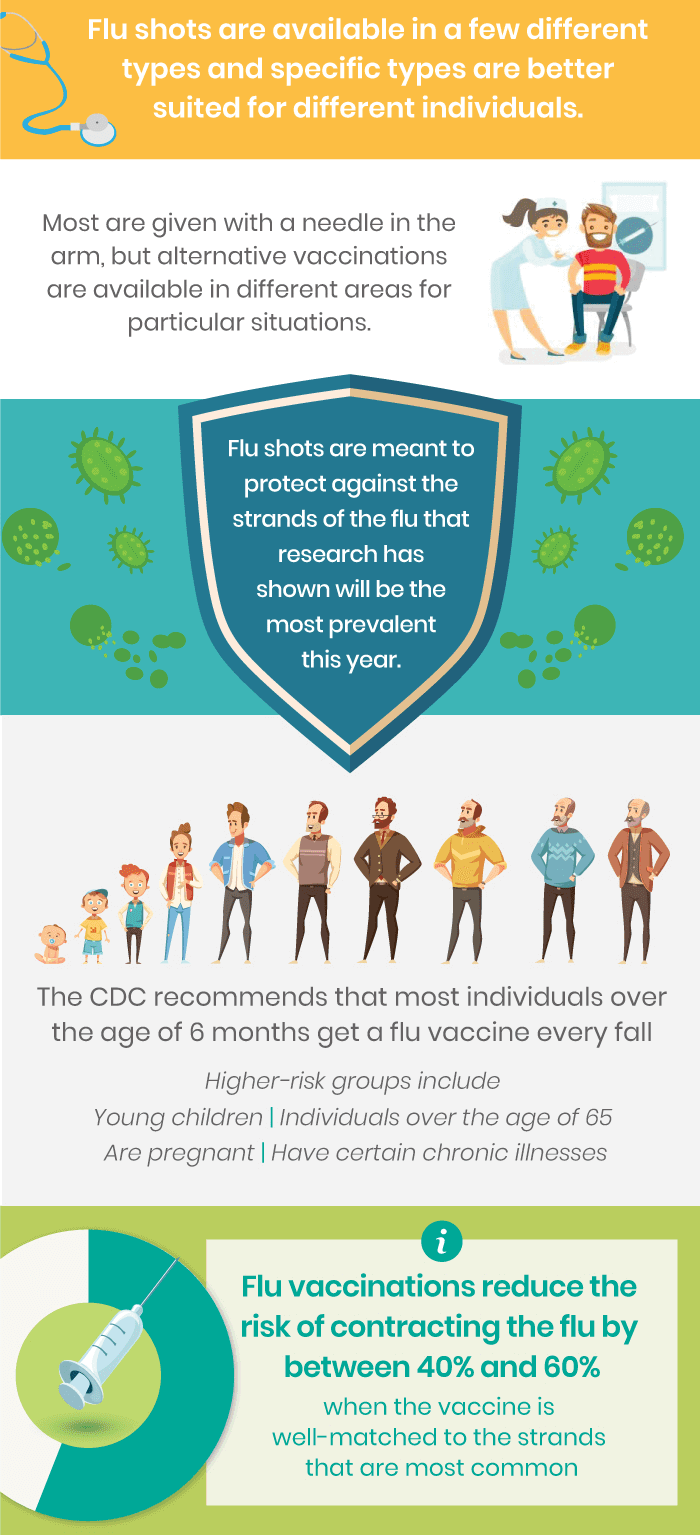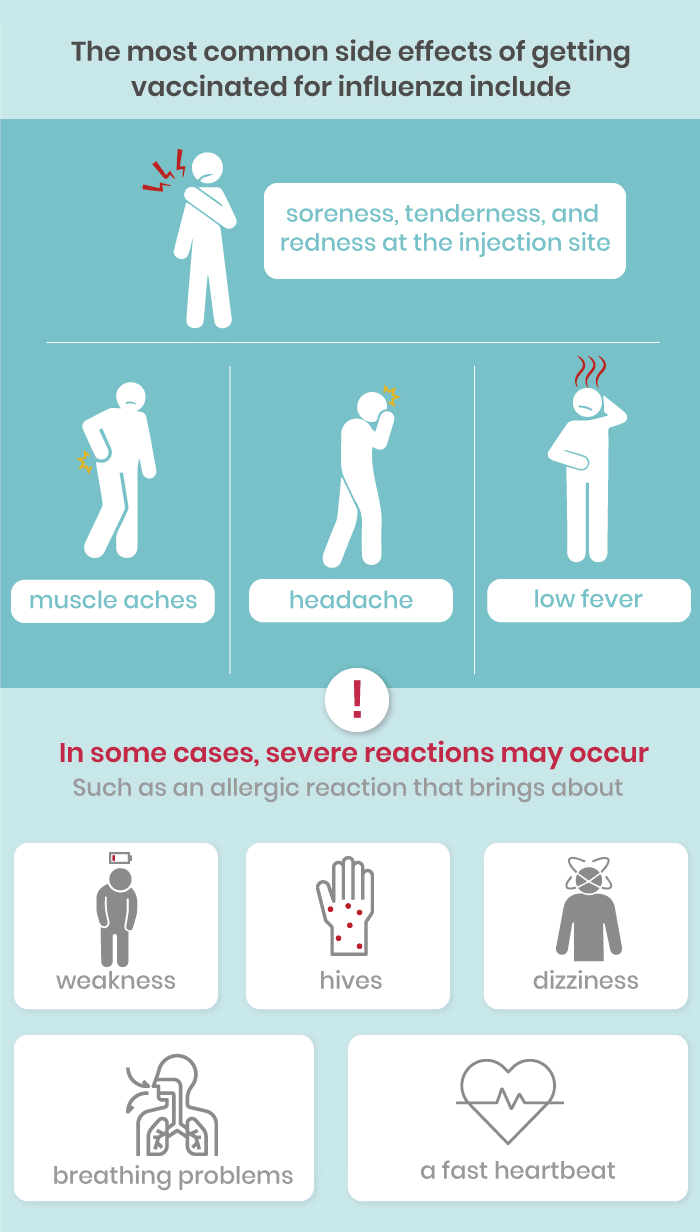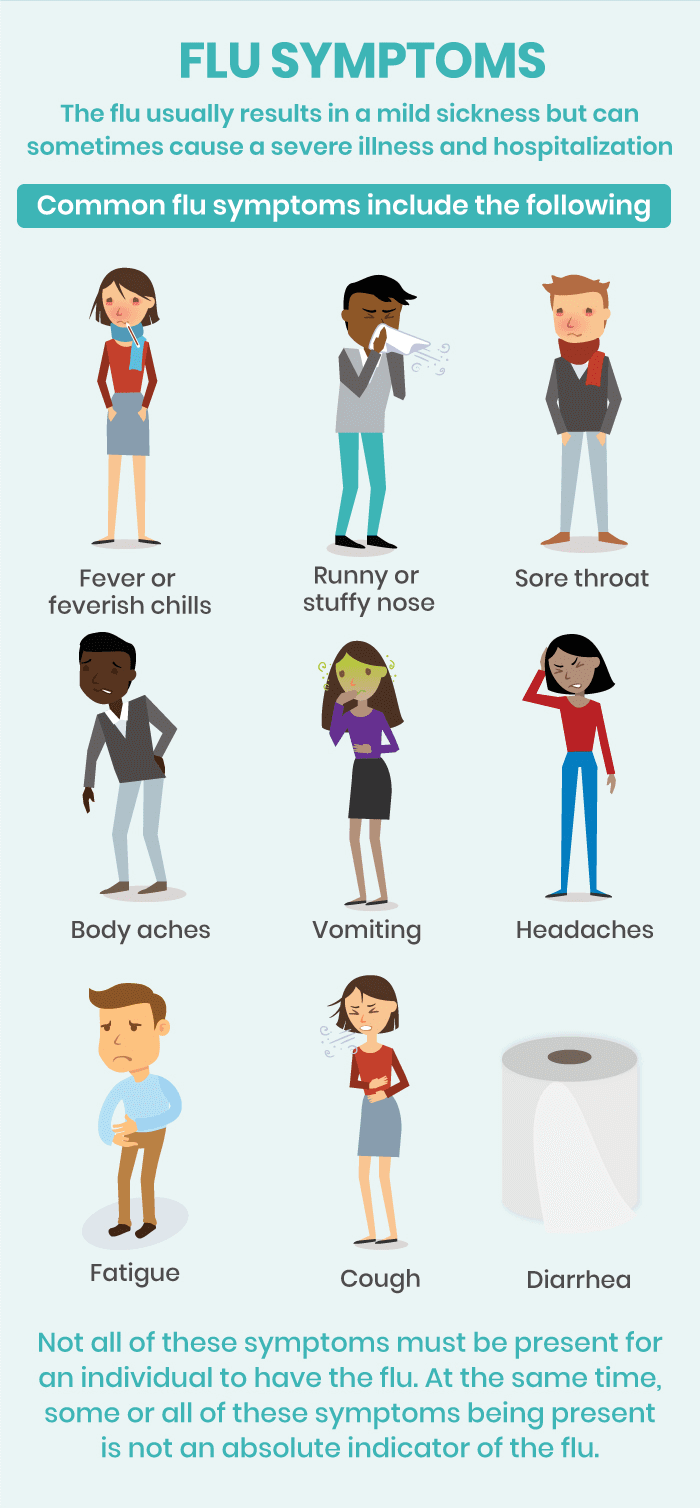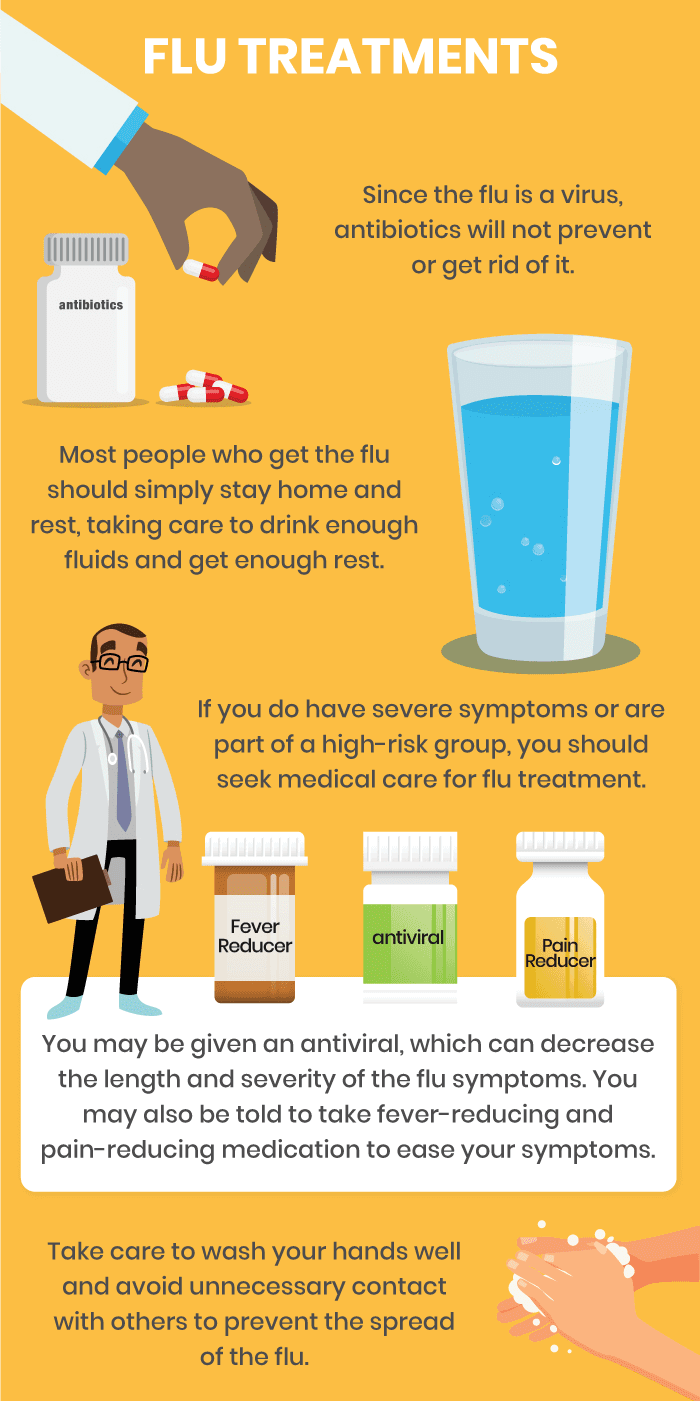Keep you and your family healthy this flu season by getting your flu shot. For most people, it involves mild to moderate symptoms that last one to two weeks. However, some people are at greater risk of experiencing a longer illness and more serious complications from the flu. Learn more about flu shots, flu symptoms and treatments.

Flu Shots
Flu shots are available in a few different types and certain types are better suited for certain types of people. Most are given with a needle in the arm, but alternative vaccinations are available in certain areas and for certain situations.
Flu shots are meant to protect against certain strands of the flu that research has shown will be the most prevalent this year.
Certain people should not get a flu shot for a variety of reasons, but the CDC recommends that most individuals over the age of 6 months get a flu vaccine every fall.
Flu vaccinations reduce the risk of contracting the flu by between 40% and 60% when the vaccine is well-matched to the strands that are most common.

Potential Side Affects
The most common side effects of getting vaccinated for influenza include soreness, tenderness, and redness at the injection site, as well as a low fever, headache, and muscle aches. In some cases, severe reactions may occur, such as an allergic reaction that brings about breathing problems, hives, weakness, a fast heartbeat, and dizziness.

Flu Symptoms
The flu usually results in a mild sickness but can sometimes cause a severe illness and hospitalization. Common flu symptoms include the following:
• Fever or feverish chills
• Sore throat
• Runny or stuffy nose
• Cough
• Body aches
• Headaches
• Fatigue
• Vomiting
• Diarrhea
Not all of these symptoms must be present for an individual to have the flu. At the same time, some or all of these symptoms being present is not an absolute indicator of the flu.

Flu Treatments
Since the flu is a virus, antibiotics will not prevent or get rid of it.
Most people who get the flu should simply stay home and rest, taking care to drink enough fluids and get enough rest.
If you do have severe symptoms or are part of a high-risk group, you should seek medical care for flu treatment. You may be given an antiviral, which can decrease the length and severity of the flu symptoms. You may also be told to take fever-reducing and pain-reducing medication to ease your symptoms.
Take care to wash your hands well and avoid unnecessary contact with others to prevent the spread of the flu.
Learn more about flu shots by texting or calling us today at (760) 736-6767. Or visit one of our many locations across North San Diego and South Riverside Counties.
DISCLAIMER: THIS WEBSITE DOES NOT PROVIDE MEDICAL ADVICE
The information, including but not limited to, text, graphics, images, and other material contained on this website are for informational purposes only. No material on this site is intended to be a substitute for professional medical advice, diagnosis, or treatment. Always seek the advice of your physician or other qualified health care with any questions you may have regarding a medical condition or treatment and before undertaking a new health care regimen, and never disregard professional medical advice or delay in seeking it because of something you read on this website.





